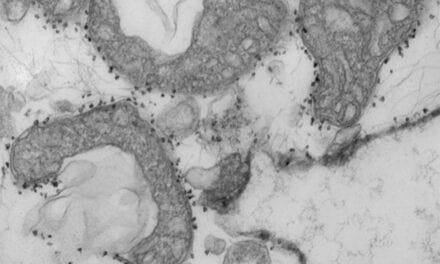Summary:
Karolinska Institutet researchers have identified over 250 proteins strongly affected by malaria, offering potential biomarkers to predict disease severity and improve treatment prioritization.
Takeaways:
- The study analyzed blood samples from 72 malaria patients, identifying around 700 proteins that changed during infection, with 250 showing strong correlations to disease severity.
- Protein profiles enabled patient grouping based on illness severity and revealed insights into immune cell activity and organ involvement.
- The findings could support earlier intervention in severe malaria cases, but require validation in larger cohorts before clinical use.
Researchers at Karolinska Institutet have identified over 250 proteins that are strongly affected by malaria, which could help predict the severity of the disease and thus enable faster treatment for the most critical patients.
The study, published in the journal Immunity, was conducted on 72 adult travelers diagnosed with malaria at Karolinska University Hospital after returning from tropical regions.
700 Proteins Identified That Change During Infection
By analyzing blood samples from these individuals, who were followed for a year, the researchers were able to identify around 700 proteins that changed during the infection, of which over 250 were strongly affected. In this way, the researchers were able to map proteins in the blood, which made it possible, among other things, to group patients according to the severity of the disease.
“Malaria can quickly become life-threatening, but it is difficult to predict at an early stage which patients are at risk of deterioration. Our results show how a set of proteins can help identify high-risk patients more quickly and enable more effective treatment,” says Anna Färnert, professor at the Department of Medicine, Solna, Karolinska Institutet, and senior physician at Karolinska University Hospital, who led the study together with Christopher Sundling at the same institution.
Data-Driven Analysis
Through data-driven analysis, the researchers were able to link the proteins to specific immune cells and identify the organs from which the proteins originate.
‘In this study, we have been able to measure such a large number of proteins with high precision in the blood of malaria patients for the first time. This provides completely new and detailed insights into the immune system’s response to the infection,’ says first author Maximilian Julius Lautenbach, postdoctoral researcher at the Department of Medicine, Solna, Karolinska Institutet.
The researchers emphasize that further studies are needed to validate these findings in larger patient groups and to explore the potential clinical applications of the protein signatures.
Featured Image: The study was conducted by lead author Maximilian Julius Lautenbach (centre) and co-authors Christopher Sundling, associate professor, and Anna Färnert, professor. Image: Stefan Zimmerman





